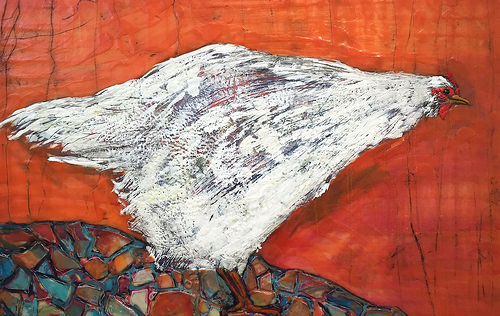
'Like a sound'
— Photo by User:Fir0002
Dark hills at evening in the west,
Where sunset hovers like a sound
Of golden horns that sang to rest
Old bones of warriors under ground,
Far now from all the bannered ways
Where flash the legions of the sun,
You fade—as if the last of days
Were fading, and all wars were done.
“Dark Hills,’’ by Edward Arlington Robinson (1869-1935), a Maine native and one of the most celebrated New England poets
Edward Arlington House, in Gardiner, Maine, where he spent his unhappy childhood
Secret anguish
Gardiner, Maine’s long-gone R. P. Hazzard Co. shoe factory in 1915
Whenever Richard Cory went down town,
We people on the pavement looked at him:
He was a gentleman from sole to crown,
Clean favored, and imperially slim.
And he was always quietly arrayed,
And he was always human when he talked;
But still he fluttered pulses when he said,
"Good-morning," and he glittered when he walked.
And he was rich—yes, richer than a king—
And admirably schooled in every grace:
In fine, we thought that he was everything
To make us wish that we were in his place.
So on we worked, and waited for the light,
And went without the meat, and cursed the bread;
And Richard Cory, one calm summer night,
Went home and put a bullet through his head.
— “Richard Cory,’’ by Edwin Arlington Robinson (1869-1935), who set many of his poems in the fictional community of Tilbury Town, modeled after Gardiner, Maine, where Robinson grew up.
In sleepy downtown Gardiner now
Birdland at Maine gallery
"White Pullet'' (encaustic), by HELENE FARRAR, in the show "Little by Little, Bird by Bird,'' at Monkitree gallery, in Gardiner, Maine.
The show includes bird-inspired art by nine Maine artists.
Ms. Farrar says she came to crafting birds when her dying mother made hamburger available to attract, and watch the beauty of, a flock of birds. (Not so beautiful for the steer killed to make the hamburger.)
"As they swooped down for their dinner, their flying and fluttering forms forced a moment of quiet and observation in an otherwise intense and painful period in my life. Birds from that point on became something else -- a witness to life's events and cycles, portraits, commentaries on life and relationships, and a general slice of humor.''
The gallery says that whether "they symbolize peace or freedom, flight or ambition, birds are the sole focus of the artists in this exhibition.''
Has she seen The Birds, the Alfred Hitchcock movie?




